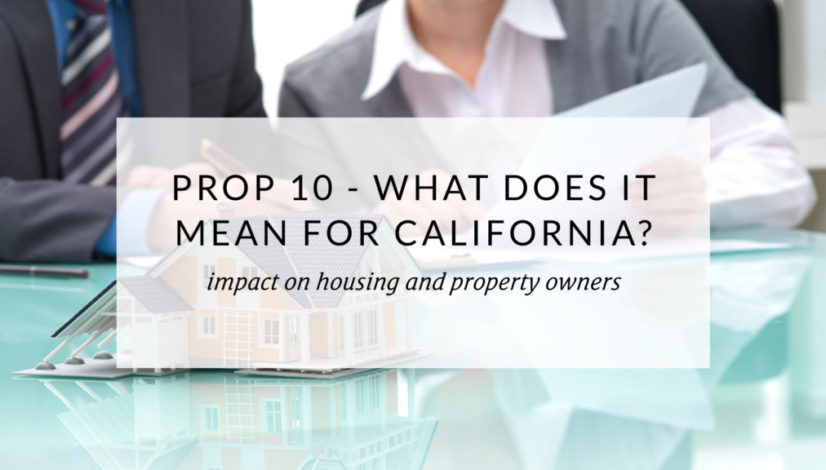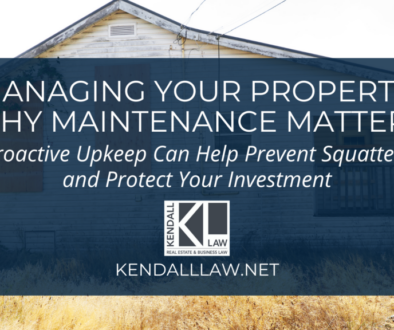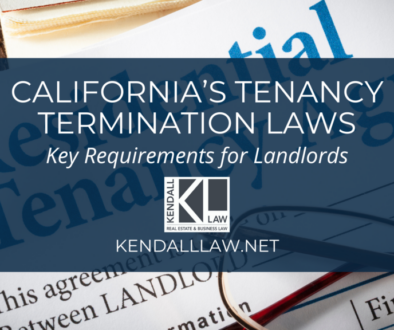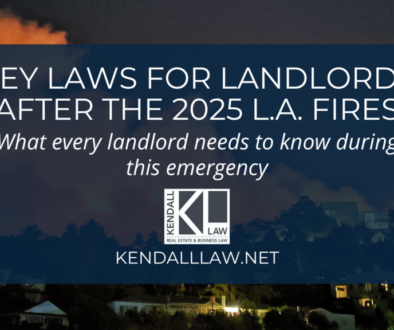Prop 10 – the Bad, the Ugly, and No Good
In November 2018, there will be a measure on the ballot that will allow cities to expand rent control regulations by repealing the Costa Hawkins Rental Housing Act. What does it all mean and will it help the evictions and ability to afford rental units?
To answer those questions, let’s cover the basics…
What is the Costa Hawkins Rental Housing Act?
Basically, it was a law enacted in 1995 that:
- Protects landlords’ right to raise the rent to market value once a rent-controlled tenant vacates the property;
- Prevents cities from establishing rent control in units built after 1995 (1978 in Los Angeles);
- Exempts single-family homes and condos from rent control ordinances.
Will Prop 10 really create “Affordable Housing”?
I write this article both as a landlord and an attorney who represents landlords and property management companies. In my opinion, Prop 10 is all bad and ugly. No good will come out of expanding rent control laws.
Prop 10 is called the “Affordable Housing Act” but based on the sources that I have researched, it will not create affordable housing. What it will do is discourage new growth and potentially discourage people like me to turn my condo into a rental property versus selling it.
What Prop 10 will do is allow cities to establish new broader rent control laws. For instance, cities could expand the laws to include single-family houses, condos and new construction. Such changes would likely decrease, not increase, the amount of available rental units.
Why you ask? If you live in a single-family home and want to either upgrade or downsize or move in with your significant other, under the current law, you are free to raise the rent to keep up with increases in taxes, insurance, etc. and evict without cause.
If rent control applies as presented under Prop 10, you will be restricted on increasing rent for your own property and will only be able to evict a tenant for cause, such as a failure to pay rent or breaches in the lease, which means you better have an excellent and thorough lease agreement with your tenants to cover what would constitute cause for eviction.
More bad news
Under rent control, if you want to take the property off the market, you will have to jump through all the hoops to get approval to evict and pay tenant relocation costs that are a minimum of $7,900 if you qualify as ‘Mom-and-Pop’ landlord.
New construction will also be curtailed because if the landlord or developer could take a loss or not break even on their investment of the property they purchased, it might not be worth the risk for them to build new rental property at all.
Same with maintenance. If a landlord is not able to recoup the costs of upkeep, maintenance and/or upgrades on the property since their hands would be tied on how much rent they can charge, it is more likely that the landlord will allow the property to become rundown and outdated.
Be informed before you vote
According to a recent Forbes article, rent control could also have an impact on the amount of wages earned. “In many cases, jobs in rent-controlled areas tend to remain low-paying. Higher rents means higher-paying jobs, which means nicer, well-maintained communities. If you have an area that suppresses rents, then higher-paying companies have a harder time finding employees, leaving lower-paying companies to thrive in those areas.” Forbes.com
The bottom line is that Prop 10 could do more harm them good. So before you go to the ballot, be informed on what the real costs of rent control expansion would mean for the housing crisis and for California.
If you have any questions about Prop 10 or it’s been awhile since your rental agreements have been reviewed, drop me a line or give us a call!
Author: Eileen Kendall





